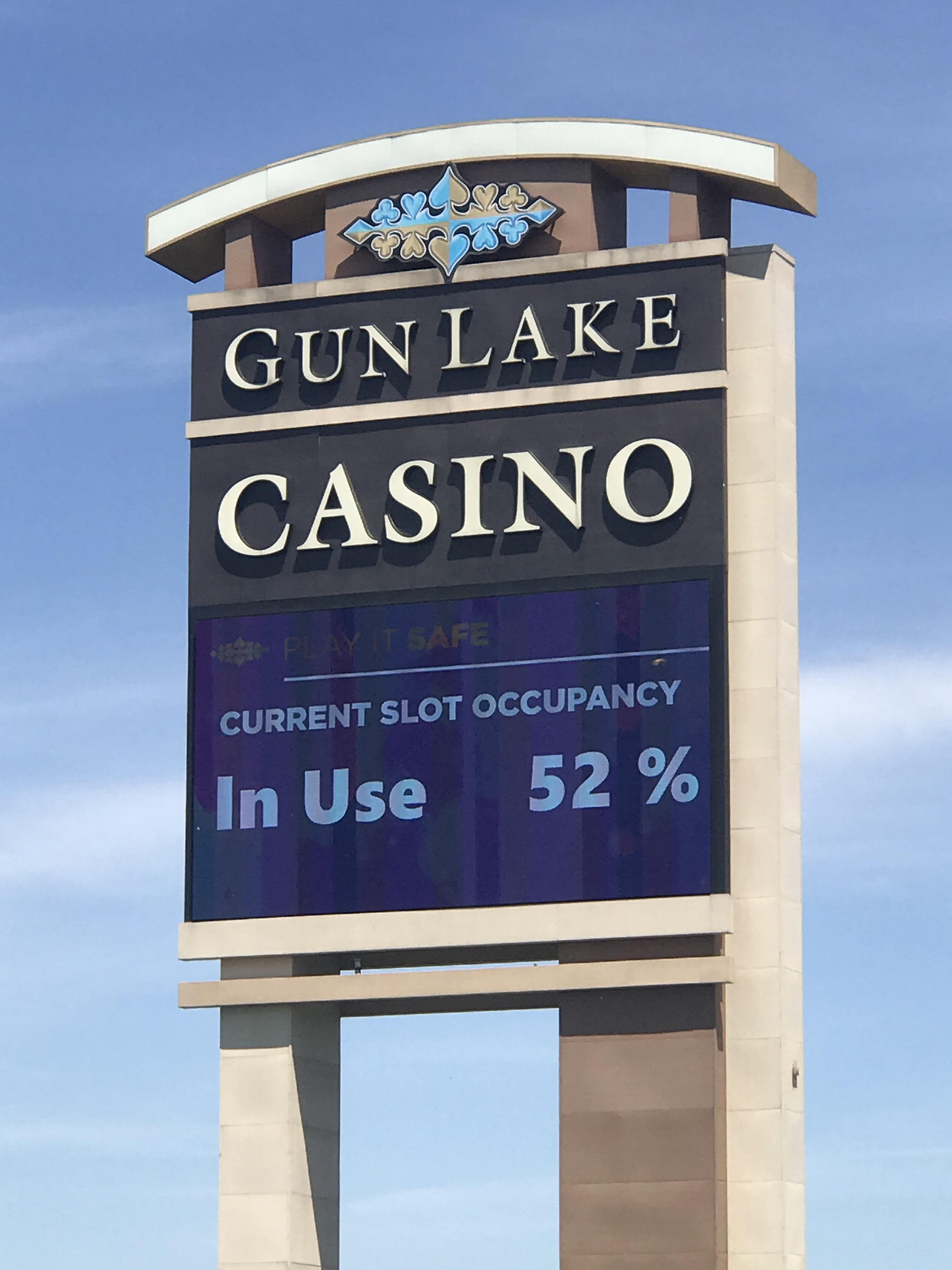
- Details
- By Native News Online Staff
BRADLEY, Mich. — Since opening its Gun Lake Casino almost 10 years ago, the Gun Lake Tribe has shared more than $150 million with the state of Michigan and local governments.
Despite a lawsuit that went all the way to the U.S. Supreme Court, the Gun Lake Casino has operated successfully since opening in February 2011, with exception of being closed for nearly three months earlier this year when it voluntarily closed its doors due to the Covid-19 pandemic.
Gun Lake tribal officials announced its fall revenue sharing payments earlier this week. The state of Michigan received $3,293,020 and the local revenue sharing board received $1,475,308. GLIMI, an economic development entity, received $987,906. The figures are calculated from electronic gaming revenues reported from April 1, 2020 to Sept. 30, 2020. The fall revenue sharing distribution total of $5,756,234 is the lowest ever for Gun Lake Casino in a six-month period due to the pandemic closure.
The Gun Lake Tribe has now shared $150,047,785 with state and local governments over twenty (20) distributions. Of that total, the tribe has shared more than $98 million with the state, which directs the payments to the Michigan Economic Development Corporation, which, in turn, awards grants to businesses to invest in Michigan and create jobs.
“The Tribe’s commitment to make a positive impact on our local community has never been stronger as we all persevere through the pandemic,” Gun Lake Tribe Chairman Bob Peters said. “This distribution would not be possible without the dedication of our executives and team members at the casino. We thank them immensely and congratulate them for helping us surpass $150 million in revenue sharing.”
To distribute funds to local government bodies, the tribe established a local revenue sharing board. The board receives and administers the semi-annual payments. The gaming compact prescribes mandatory funding to local municipalities for: costs incurred due to the operation of the casino; public safety services; and replacement of tax revenue. The board established by-laws to govern the distribution process. The local payments are made under terms of the gaming compact independent of gaming exclusivity. Local payments now total more than $35 million.
The Gun Lake Casino recently announced reduced hours of operation, closure of food and beverage outlets including no sale of adult beverages, no smoking and increased sanitation measures to assist in the effort to reduce the risk of COVID-19 infection. The Casino’s Play it Safe Initiative has successfully created a safe environment for team members and guests.
Gun Lake now employs more than 1,100 team members.
More Stories Like This
American Basketball Association Announces Native ABA InitiativeFour Winds South Bend Upgrades to Class III Gaming Casino
Native News Online Wins Two Awards from Native American Journalists Association
Wahlberg Brothers Are a Big Hit at Indian Gaming Tradeshow and Convention in Las Vegas
Native Gro Offers Tribes a ‘One-Stop Shop’ for Entering the Cannabis Industry
Help us defend tribal sovereignty.
At Native News Online, our mission is rooted in telling the stories that strengthen sovereignty and uplift Indigenous voices — not just at year’s end, but every single day.
Because of your generosity last year, we were able to keep our reporters on the ground in tribal communities, at national gatherings and in the halls of Congress — covering the issues that matter most to Indian Country: sovereignty, culture, education, health and economic opportunity.
That support sustained us through a tough year in 2025. Now, as we look to the year ahead, we need your help right now to ensure warrior journalism remains strong — reporting that defends tribal sovereignty, amplifies Native truth, and holds power accountable.
 The stakes couldn't be higher. Your support keeps Native voices heard, Native stories told and Native sovereignty defended.
The stakes couldn't be higher. Your support keeps Native voices heard, Native stories told and Native sovereignty defended.
Stand with Warrior Journalism today.
Levi Rickert (Potawatomi), Editor & Publisher

